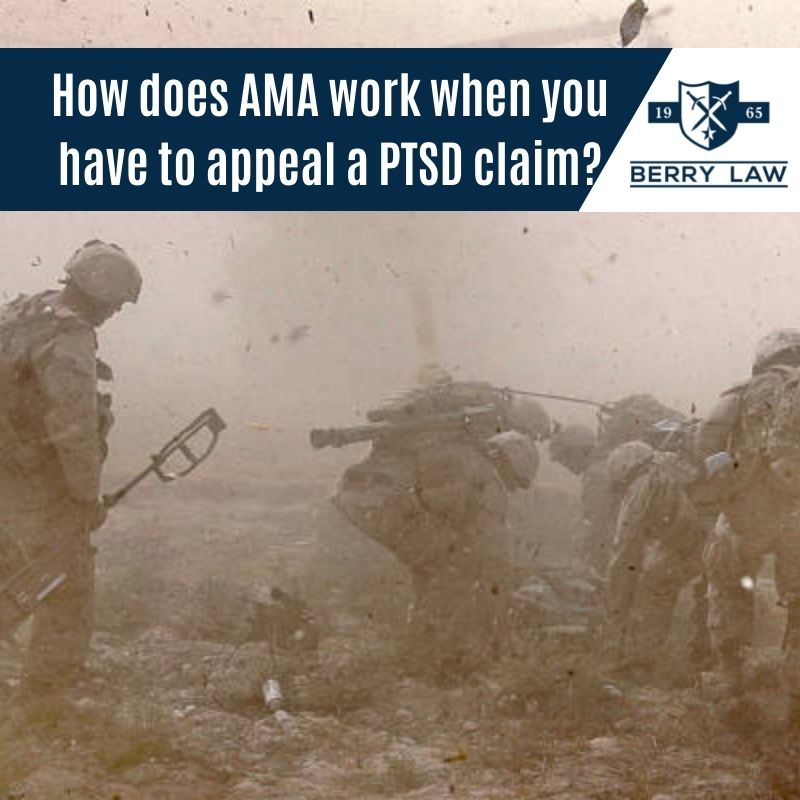
Claims for post-traumatic stress disorder (PTSD) can be difficult to navigate. To begin a claim under the Appeals Modernization Act (AMA), you must submit a 526ez claiming PTSD. For most conditions, a 526ez is all that is required to begin a claim. For PTSD however, the VA will require you to submit an additional form called a VA Form 21-0781. This is a specific statement in support of claim for PTSD claims and is used to provide additional information related to your service. This form requires information related to your in-service stressor events, including the date of the incident, the location of the incident, what unit you were assigned to, a description of the incident, and any medals or citations you received related to the stressful incident. If your stressor is related to witnessing a violent event or accident in which another person was killed or injured, it will ask for information related to that person as well. It is important to note that PTSD can arise from many different kinds of traumatic events such as sexual violence or trauma, and is not limited to combat. The 21-0781 is important because the VA will use the information provided to attempt to verify your stressor occurred.
Once your claim is submitted, the VA may ask for additional information such as private medical records. The VA may also have you scheduled for an examination before issuing a rating decision. Once these steps are completed, the VA will issue a rating decision describing the evidence considered and the reasons and bases for its decision. The VA will either deny service connection or grant service connection and assign a rating.
Receiving service connection is only half of the battle. Once you are service-connected, you must ensure the VA provided you with the proper rating. PTSD and other mental health claims are rated from 0% to 100% based on the rating schedule. The rating provided is based on social and occupational impairment. In other words, it is based on how severe your symptoms impact your social life and ability to work. A 100% evaluation requires total social and economic impairment.
If the VA’s decision is unfavorable, such as denying service connection or providing a rating that is too low, you have three options for appeal. Any appeal must be submitted within one year in order to protect your effective date. The first is a supplemental claim, which allows new evidence to be submitted. This is the best option if the VA is missing important and relevant evidence. Any new evidence must be “new and relevant.” New evidence is evidence that has never been submitted previously. Relevant evidence is evidence that tends to prove a matter at issue in your claim. This means the evidence just has to nudge the case in your favor, it does not have to definitively prove a part of your case. Relevant evidence can include buddy statements, historical records such as newspaper clippings that show your stressor occurred, or a list of mental health symptoms you experience. A supplemental claim can always be submitted to appeal a rating decision.
If the VA has all of the evidence it needs to decide the case in your favor but made an error in evaluating your claim, the next step is higher-level review. An appeal on higher-level review does not allow for any new evidence to be submitted, you must appeal based on the evidence already in front of the VA. The benefit of a higher-level review is that it sends your case to a different and more experienced employee at the VA. Oftentimes getting your case in front of a fresh pair of eyes at the VA can help move a claim along. If you have already submitted an appeal for higher-level review and the VA has still denied your claim, you cannot submit another request for higher-level review. You must submit a new supplemental claim with new evidence, or go to the Board.
Appealing to the Board sends your case to a veteran’s law judge, who will review your entire file and write a thorough decision for your claims. The Board will do one of three things. The Board will deny your claim if it feels you have not proven your case, it will grant your claim if it finds the evidence in the record is sufficient to prove your claim, it will remand your claim if it agrees the VA has failed to properly process your claim. A Board remand is a win for you, as it will come with specific instructions for the VA to follow that must be obeyed.
Our monthly newsletter features about important and up-to-date veterans' law news, keeping you informed about the changes that matter.